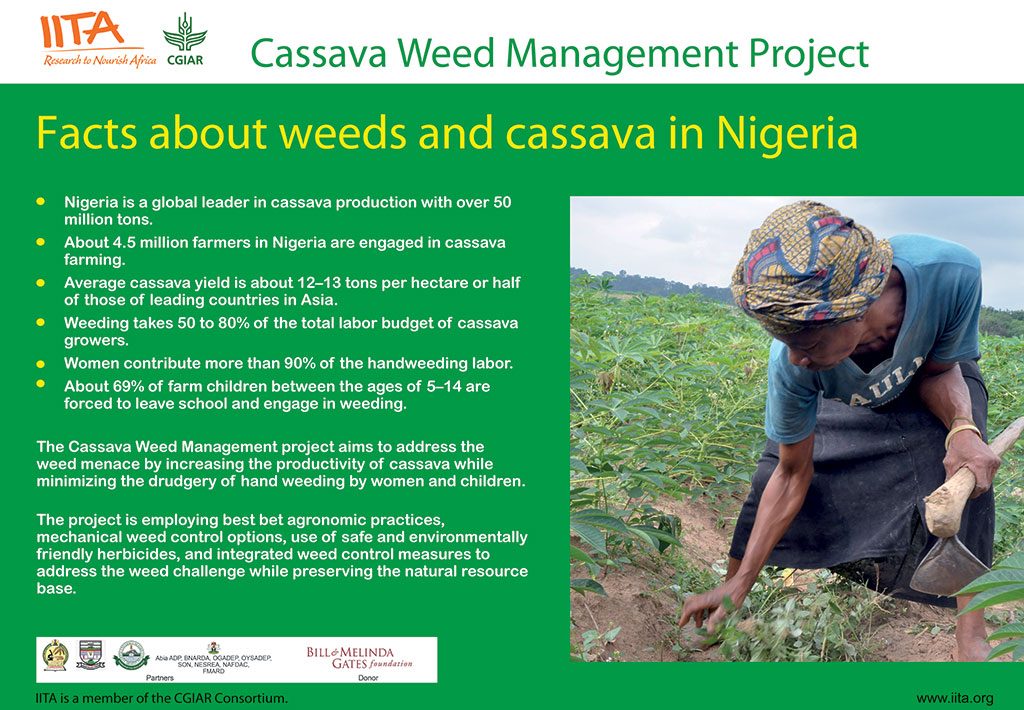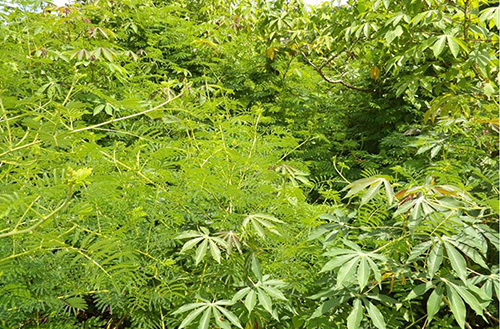Weeds are plants growing where they are not wanted. Many different types of weeds occur in cassava farms and cause considerable losses to the farmer. This is because weeds compete with the cassava crop for nutrients, sunlight, and space. Weeds may harbor pests and diseases or physically injure cassava plants and storage roots.

Weeds may also harbor natural enemies that control pests, so certain weeds can be left on cassava farms, provided they are not many enough to compete with the crop. The presence of weeds limits the productivity of cassava, and negatively impacts farming families. Weeding takes 50 to 80% of the total labor budget of cassava growers. Up to 200-500 hours of labor for mostly women and children per ha are required to prevent economic cassava root losses in Nigeria.
Women contribute more than 90% of the hand-weeding labor while 69% of farm children between the ages of 5-14 are forced to leave school and engage in weeding. This burden compromises their education.
Unless weed control is improved, Nigerian farmers will not produce optimal cassava yields, since farm families cannot plant more area than they can weed.
Cassava farm over taken by Mimosa invisa

